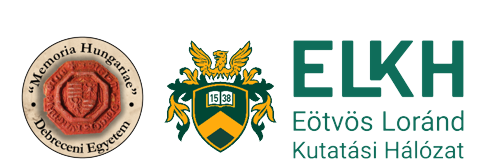The Emergence of the Memory and Research of Anglo-Hungarian Relations in the 19th and early 20th century
I always say to English colleagues that there is only one foreign nation who knows everything of Edward I, King of England. Every school pupil knows how the monarch campaigned against the Welsh rebels, stayed at Montgomery Castle and has an idea where Milford Haven is. Some even have an idea who the “lordjmajor” was. It is because János Arany wrote A walesi bárdok on the suppression of the Celtic poets.
The paper investigates how the poet had a wide knowledge on English history, in what way he had access to sources in the late 1850s. As a modern medievalist myself have long tried to unveil how Arany got to his sources, since his information regarding Lord Montgomery and Milford Haven are all historically justified. How in mid-19th century Hungary English history was well-known?
Shakespeare’s dramas were translated into Hungarian and staged in theatres very early in the 19th century, much earlier than in other parts of Europe, that is, certain fields of his historical plays – Macbeth, King Richard III etc. – had an audience in the public.
The paper is trying to explore the reasons behind this Anglophile attitude.
There was an awakening of an interest of English liberal ideas and the model of constitutional monarchy as early as the Enlightenment, in addition, there was a scholarly interest into the history of England which had stemmed from the peregrinatio of Hungarian Calvinist students into English universities, mainly from the Debrecen Reformed Church College. Ézsaiás Budai was educated in Oxford. Edinburgh had important contacts with Debrecen. One is needless to stress the cultural and intellectual links aristocratic travellers – Széchenyi, Wesselényi etc. – were building up from the 1810s. The liberal-minded nobility were attracted by England.
The ‘outburst’ was also felt in history writing. Emigrant intelligentsia – beyond Pulszky, László Teleki, Kossuth himself as well – spent time in the British Library and examined English history. Some of them, e.g. Simonyi, Hatvani-Horváth rose from amateur level and even published source collections.
A range of topics emerged from the common historical past: a ‘fashionable’ field was the common ideological basis of the Golden Bull and the Magna Carta; another which attracted a large non-scholarly audience was the Hungarian stay of the sons of Edmund Ironside, who supposedly escaped to Hungary and his offspring, St. Margaret of Scotland had a Hungarian descent. A number of Scottish aristocratic families have up to the present day originated their roots to the court of St. Stephen.
The relationship was embraced by professional historians and cultural historians, philologists (Marczali, Jenő Horváth, Fest, István Gál). The research gained a peculiar colour in interwar Hungary, where the field itself meant an opposition to the ruling elite and the country’s strong German commitment, an open door towards the free, Anglo-Saxon world.






